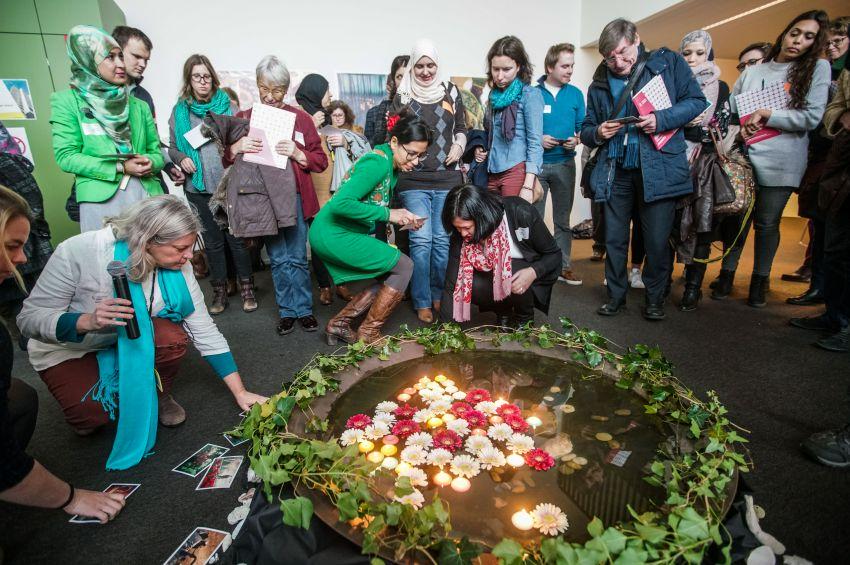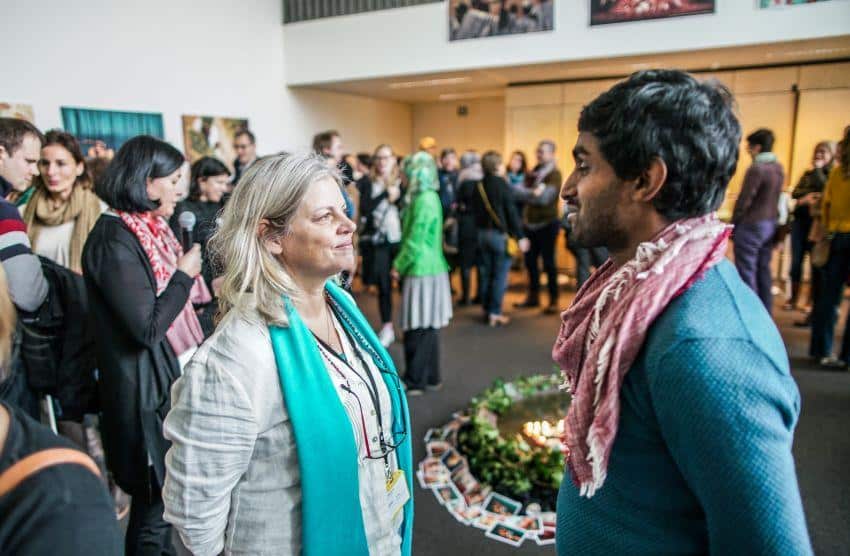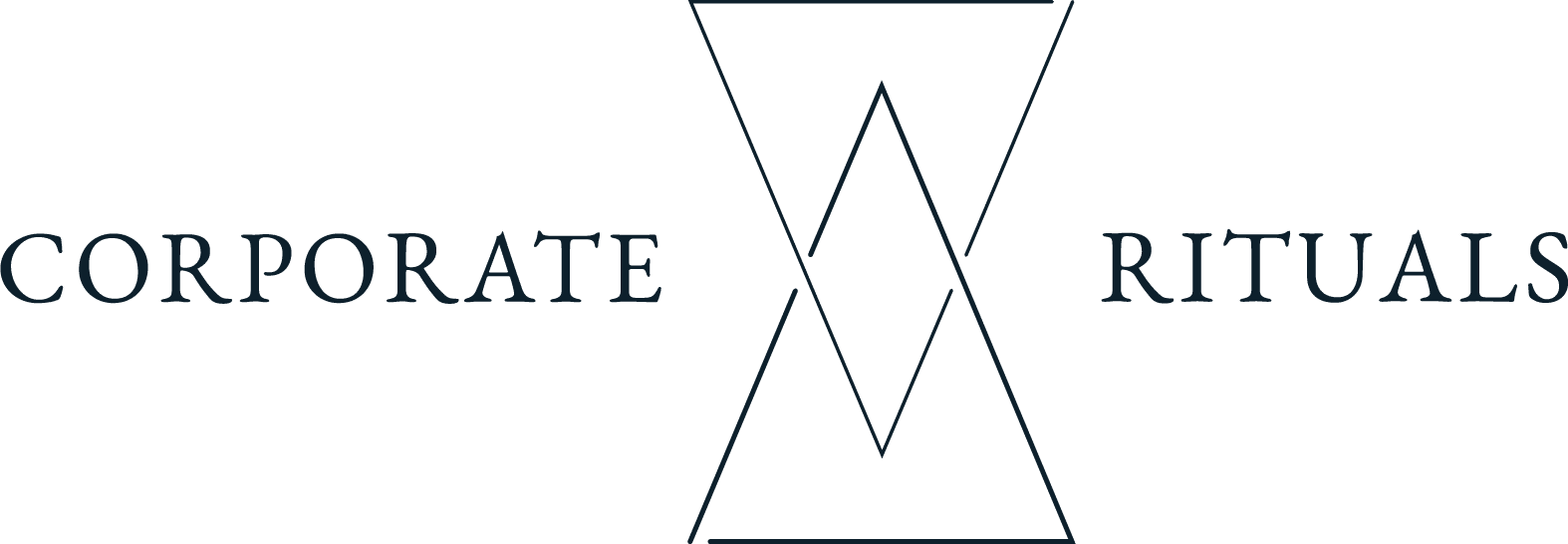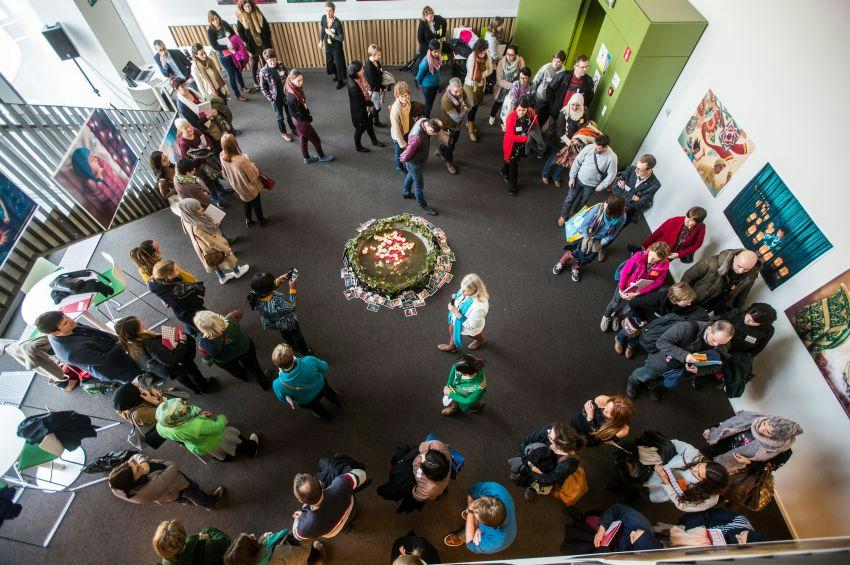A co-creation of 120 civil servants with diverse religious and cultural backgrounds
Anyone who regularly entered the buildings of the Flemish government at the end of 2018 saw the word ‘rituals’ appear on the information screens. It related to the anniversary celebration of the ‘Day of the Migrant’ and the 5th anniversary of the personnel network Mozaïko of the Flemish Government Department of Diversity Policy. Mozaïko was looking for solutions for the various barriers that staff members of foreign origin encounter within the Flemish government.
During a lustrum celebration, the Flemish Government brought together 120 employees from diverse cultural and religious backgrounds to honour the network for achieving a target figure for that target group on the one hand and to determine the ambition to go further on the other.
Corporate Rituals was asked to help those present reflect and experience: what connects us in our workplace, what transcends our religions, and what ensures that we (despite our different cultural and religious backgrounds) work together towards our goal without compromising the experience of spirituality (which nevertheless plays a major role and determines the meaning in our lives).
The professional and participative approach of Corporate Rituals resulted in a pleasant collaboration that led to a beautiful connecting ritual, which was stretched like a rainbow over the day and the different philosophies of life. An absolute added value!
Gert Tielemans, Flemish government
Co-creation is key
With Corporate Rituals, we often create new rituals without having the fixed symbols from a particular culture or religion available. To ensure that everyone feels safe and addressed to step into a ritual, it helps to co-create the ritual with the customer.
For this assignment, we explored with seven employees of the Flemish government both the intention of the ritual and the symbols with which we could shape it. In this way, we stayed connected with different experiences of religion, culture, and spirituality. This assignment needed to be meaningful and respectful. The co-creation session provided keywords, symbols, and metaphors that laid the foundation for creating the starting and closing rituals. During the ritual, these designers took an active role as guides and supporters.
Words of affirmation from the chief
A Kasàlà as a starting ritual, vigorously delivered by the Secretary-General in an appropriate tone, immediately set the intention of this day. The Kasàlà ritual stems from the ancient African oral tradition and is a form of praise poetry that celebrates the beauty and relationality of life. Jean Kabuta (one of our Elders at Corporate Rituals) makes this tradition accessible to the West. Corporate Rituals coached the secretary-general in writing out and practicing the kasàlà so that both form and content could come into their own.
In the day program, participants could sign up for a workshop, ‘The Power of Rituals in the Workplace.’ Through an interactive lecture, participants could better understand why rituals are relevant in the Flemish government’s workplace. The start and end ritual was also immediately explained so that participants could open themselves up even better to the experience.

A deeply human experience that creates connections across cultures
Corporate Rituals and Mozaiko representatives participating in the preparatory co-creation guided the closing ritual. The decoration of the room was part of the experience. The ‘aesthetic experience’ was also given attention, and beautiful art was created. Around a central flower and water bowl, participants could meet and connect in a different way, from person to person.
The ritual led to a more profound experience of ‘what it means to be human’ on several levels. This human experience deepened connections with diverse cultural and religious backgrounds within this team.


